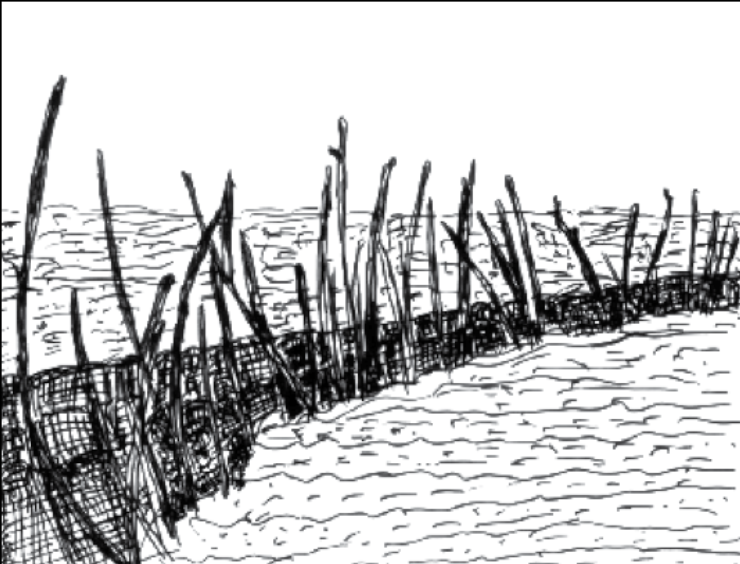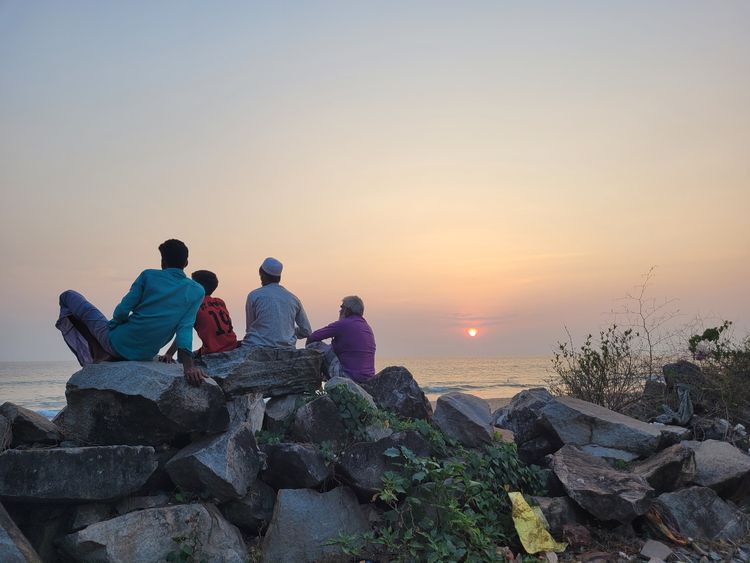#4 It's Official: Aquaculture can now be practiced unabated across India's coastline

This week, during the ongoing parliamentary Monsoon Session, both the Lok Sabha [House of the People] and the Rajya Sabha [Council of States] passed the Coastal Aquaculture Authority [Amendment] Bill 2023.
As explained in the last newsletter, this means that the coast has now entirely opened up for aquaculture farms – shrimp, seaweed, cage culture and the allied infrastructure [hatcheries and breeding centers] to flourish without restrictions of any coastal regulations. The bill has also decriminalized unregistered farm set-ups, removing the three-year imprisonment period to a penalty or suspension.
The core of the bill, at its heart, is all about 'ease of doing business'. The fisheries sector is one of the fastest growing sectors in the country today, in terms of production and export. The majority of the production and export is happening in the aquaculture sector. And 70% of this production takes place in Andhra Pradesh.
All the parliamentary representatives presenting the remarks on the bill, in both the Lok Sabha and the Rajya Sabha made it a point to say that the bill will be of most benefit to marginalised farmers and fishers. They stated that the small-scale fishers of the country will thank the parliament for passing the bill. In the Lok Sabha, the following people made their representations
- Manoj Tiwari, MP, Bhartiya Janata Party, North-East Delhi - focused on decriminalisation
- Rajeshbhai Narenbhai Chudasama, MP, Bhartiya Janata Party, Junagadh-Gir Somnath, Gujarat – focused on ease of doing business
- PP Chaudhary, MP, Bharatiya Janata Party, Pali, Rajasthan – focused on boosting the economy
- Malook Nagar, MP, Bahujan Samaj Party, Bijnor, UP – focused on benefit to small fishers and farmers
- Pratap Chandra Sarangi, MP, Bharatiya Janata Party, Balasore, Odisha – focused on ease of doing business
- Krishna Devarayalu Lavu, MP, YSR Congress Party, Narasaraopet, Guntur, Andhra Pradesh — While speaking in agreement to the bill, he was the only speaker who raised concerns about how individual farmers and fishers were unable to access the funds supposedly made available in the grand Pradhan Mantri Matsya Sampada Yojana [PMMSY]. He also spoke about the lack of representation of fishing communities in the creation of the amended bill. He was the only speaker to talk about sustainability and traceability measures and the harms of antibiotic usage in farms and hatcheries, and the need for more testing labs.
In the Rajya Sabha, the representatives had similar things to say. A special emphasis was laid on how this bill will benefit the marginal, traditional farmers and fishers. While most agreed to the bill, one speaker, Kanakamedala Ravindra Kumar, MP, Telegu Dasam Party, Andhra Pradesh was not entirely in favour of it and spoke up about the environmental damage aquaculture brings to the coastline, mentioning that most existing farms do not have effluent treatment plants. To this point, the union government Minister of Fisheries, Animal Husbandry and Dairying replied saying that in the name of environment, some people are stopping industrial growth of the country via foreign agencies. The other speakers included
- Sasmit Patra, MP, Biju Janata Dal, Odisha – he spoke about the importance of research and development in creating protocols to ensure the prevention of disease via pathogens and to ensure the appropriate use of aquaculture inputs.
- Masthan Rao Beeda, MP, YSR Congress Party, Andhra Pradesh – he spoke in reams of data about the growth of the fisheries sector. Interestingly, Beeda is also the chairman of BMR Group, one of the largest shrimp exporters in the state.
- M. Thambidurai, MP, AIADMK, Tamil Nadu – he spoke about how the bill will enhance seaweed production in Tamil Nadu.
- V. Vijayasai Reddy, MP, YSR Congress, Andhra Pradesh
- GK Vasan, MP, Tamil Maanila Congress, Tamil Nadu
The bill has been passed and is on its way towards becoming a national law. While the arguments presented in both the houses of parliament promise of a sunny future for the country's small fishers and farmers, the lack of representation of the community in the creation of this bill should not go unnoticed. Their concerns around lack of access to land, water, saline water intrusion, pollution and a long-term degradation of soil did not get a proper representation during the discussion. Who ultimately benefits from this 'growth', then?


